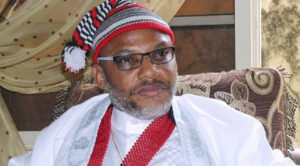
Just-In: Abbas withdraws compulsory voting bill
Following several criticism against the moves by the National Assembly to make voting compulsory for all Nigerians, the Speaker of the House of Representatives, Tajudeen Abbas, has withdrawn the bill
The bill was co-sponsored by Abbas and Daniel Ago, lawmaker representing Bassa/Jos north federal constituency of Plateau state.
Many prominent Nigerians and Civil Society Organisations (CSOs) have kicked against the bill, describing it as describing it as a violation of citizens’ constitutional.
The bill proposes a six-month jail term or a fine of N100,000 for eligible voters who fail to participate in elections.
Abbas said the objective is to address low voter turnout, promote civic responsibility, and transform voting from a personal choice into a legal obligation.
A Senior Advocate of Nigeria, Femi Falana, who also criticised the proposed said runs contrary to several provisions of the 1999 Constitution.
“I doubt that the speaker and his colleagues paid sufficient attention to the relevant provisions of the 1999 Constitution.
“Otherwise, they would have realised that compulsory voting is constitutionally invalid in every material particular on the ground that it is inconsistent with sections 37, 38, 77(2), 135(5), and 178(5) of the constitution,” he said.
According to the human rights lawyer, these constitutional provisions safeguard the rights of Nigerians to privacy, freedom of thought and conscience, as well as the right to register and vote voluntarily in national and state elections.
Falana supported his argument by citing judicial precedents. He referenced the Supreme Court’s decision in Medical and Dental Practitioners Disciplinary Tribunal v Okonkwo (2001) 7 NWLR (Pt 711) 206, where the court upheld the right of a patient to refuse blood transfusion based on religious beliefs.
“In that case, a patient, Mrs Martha Okorie, and her husband belonged to a religious sect known as Jehovah’s Witnesses, who believe that blood transfusion is contrary to God’s injunction.
“On account of the rejection of blood transfusion, the patient lost her life. Dr Okonkwo, who treated the patient, was convicted… but the Supreme Court set aside the conviction on the ground that the doctor was right in respecting the fundamental right of the deceased to refuse blood transfusion on the basis of her religious belief,” he recalled.
Falana quoted the late Justice Emmanuel Ayoola, who delivered the judgment, stating, “The right to privacy implies a right to protect one’s thought, conscience or religious belief and practice from coercive and unjustified intrusion… and a right not to be coerced into acting contrary to one’s religious belief.”
He also cited the Supreme Court’s ruling affirming the rights of Muslim students to wear the hijab in schools, further underscoring the judiciary’s stance on protecting individual freedoms.
The legal expert urged the House of Representatives to withdraw the bill, warning of its impracticality and potential legal invalidity.
“Apart from the possibility that compulsory voting may be declared illegal under the current political dispensation, it is practically impossible to prosecute millions of Nigerian voters who may decide to boycott national and local elections,” he said.
- Gatekeepers or spectators? National assembly’s two-year performance gap
- Wike pulls out of PDP peace deal, blames Makinde, Mbah
- Delegates disrupt Atiku, Obi coalition meeting in Abuja
Share your story or advertise with us: Whatsapp: +2348033202396 Email: sentinelnewsng@gmail.com








